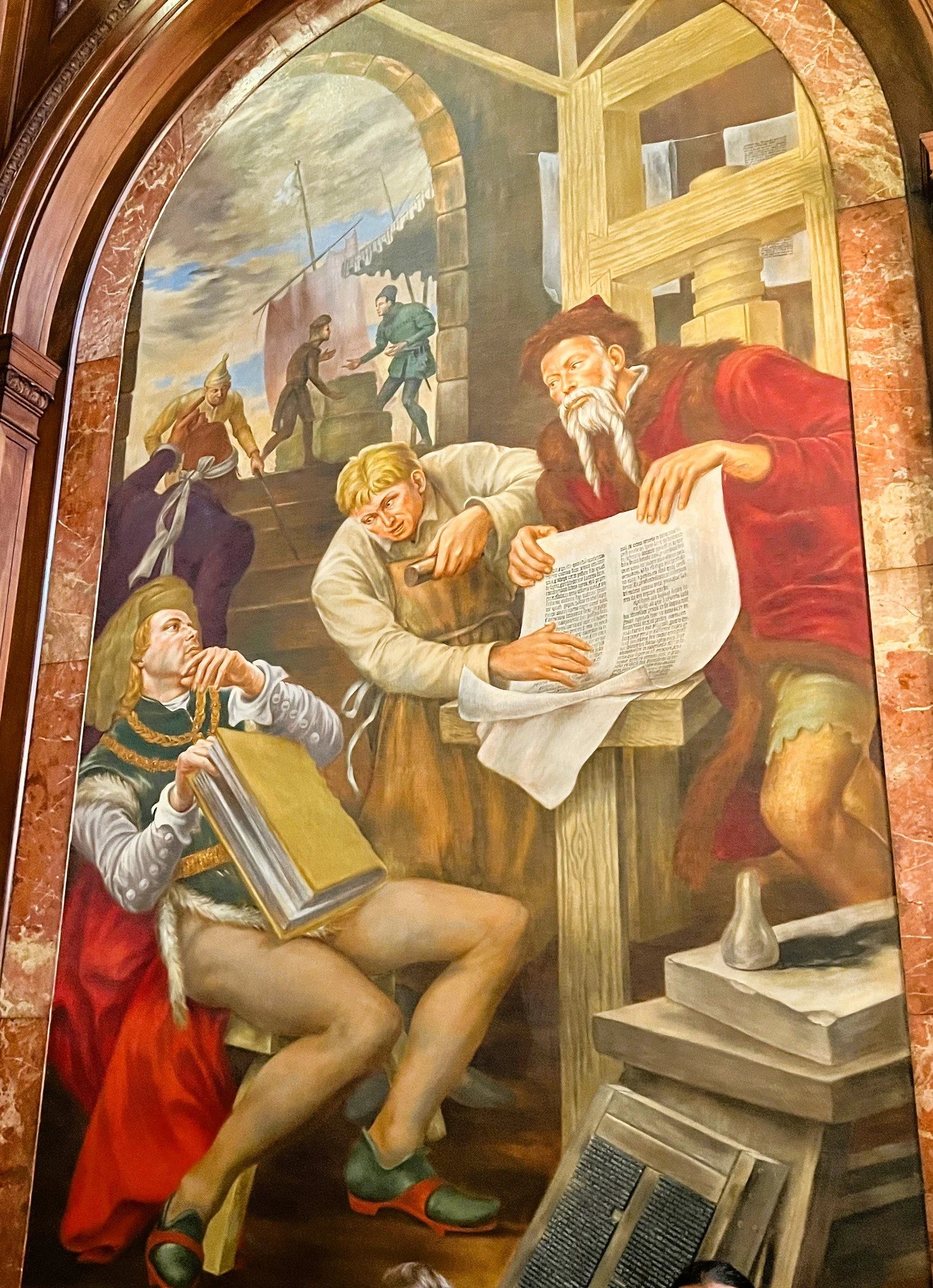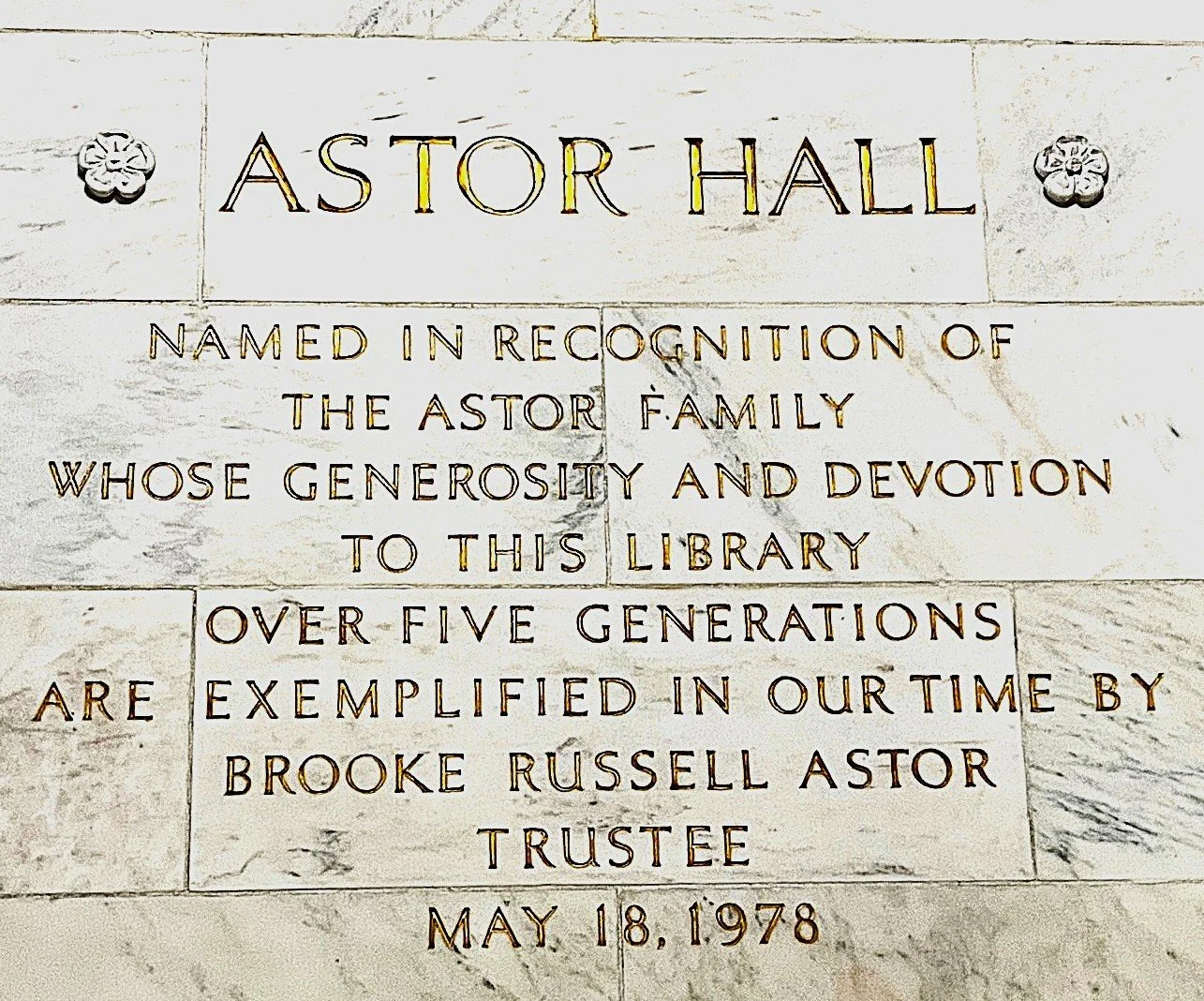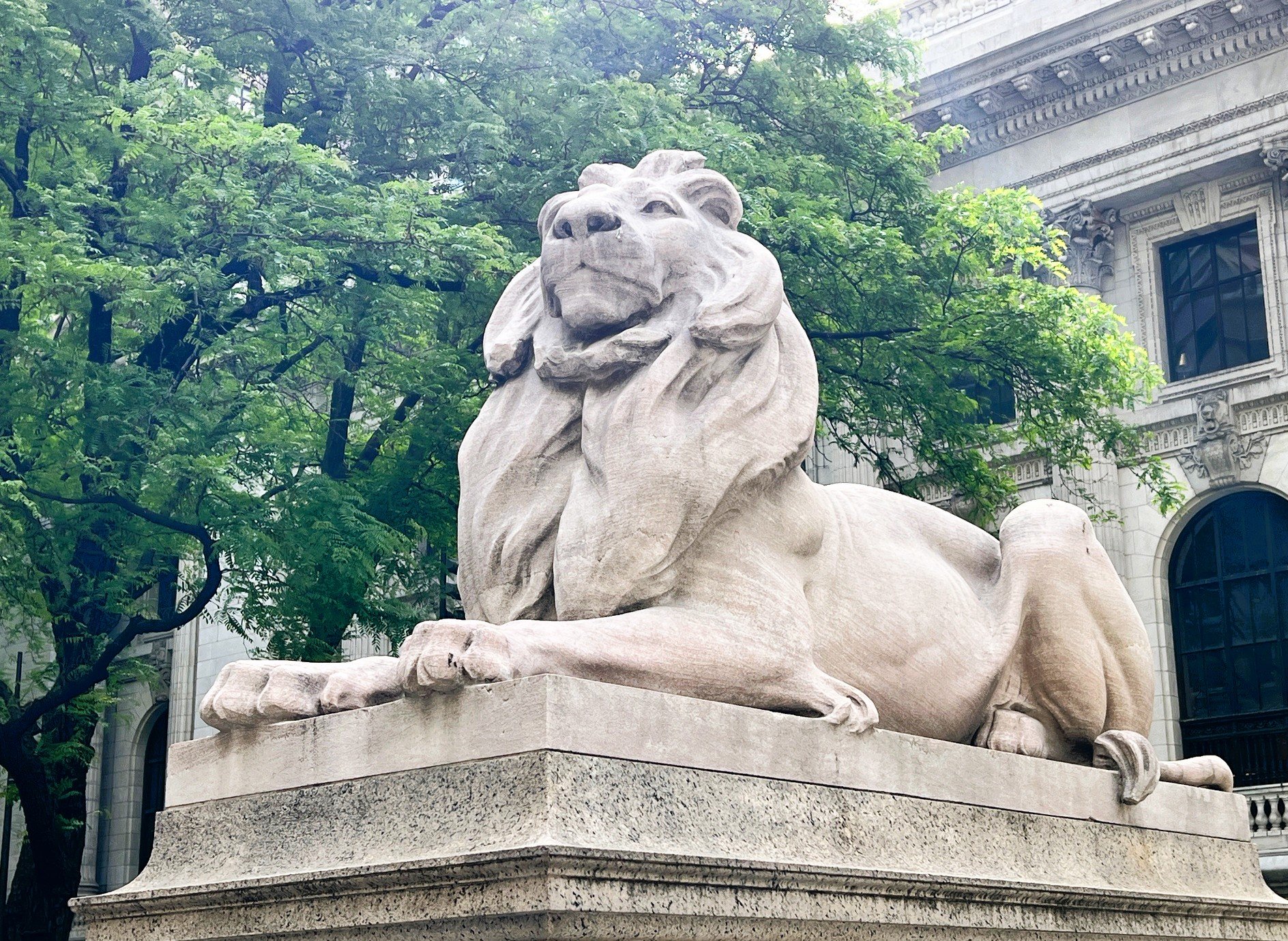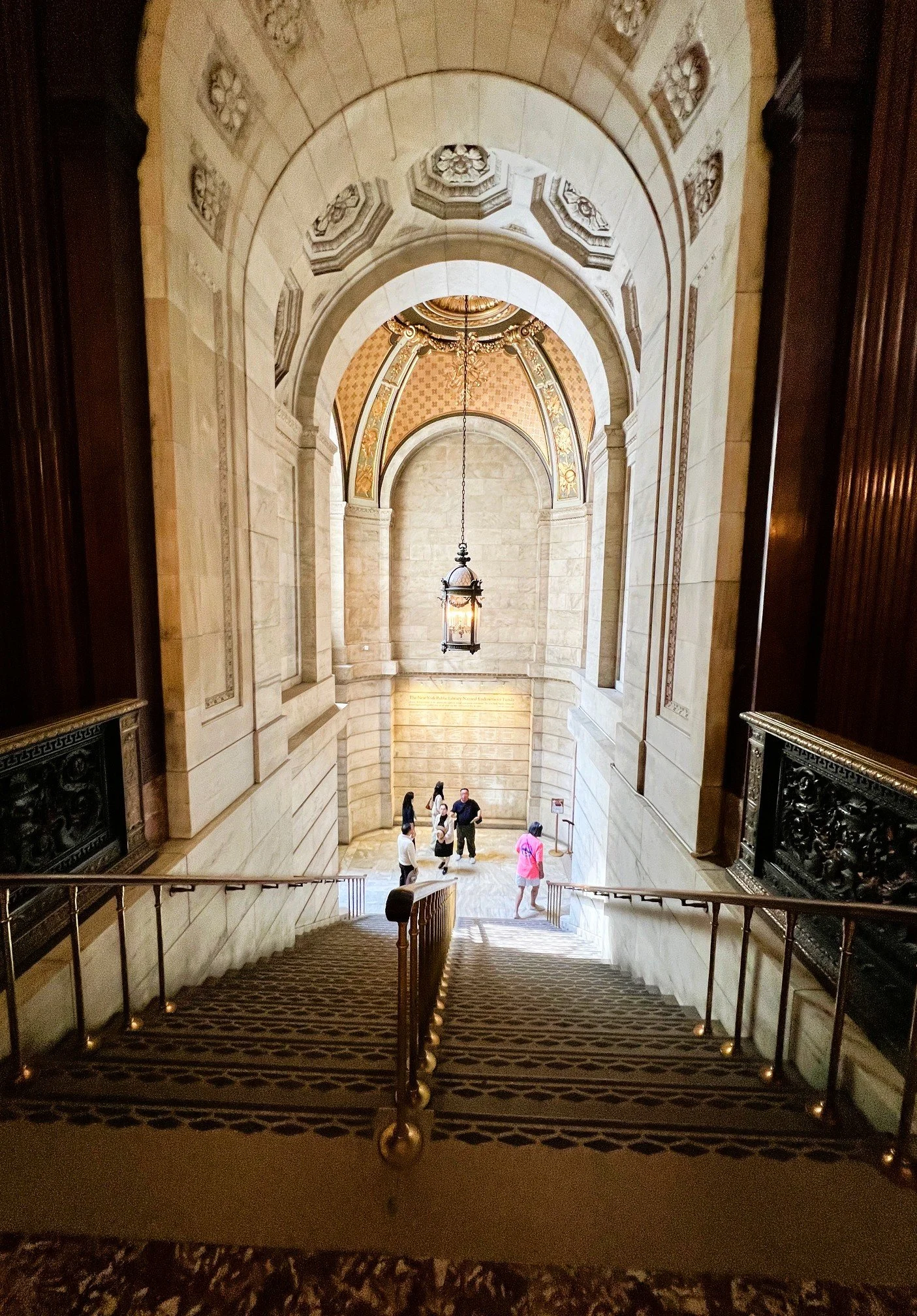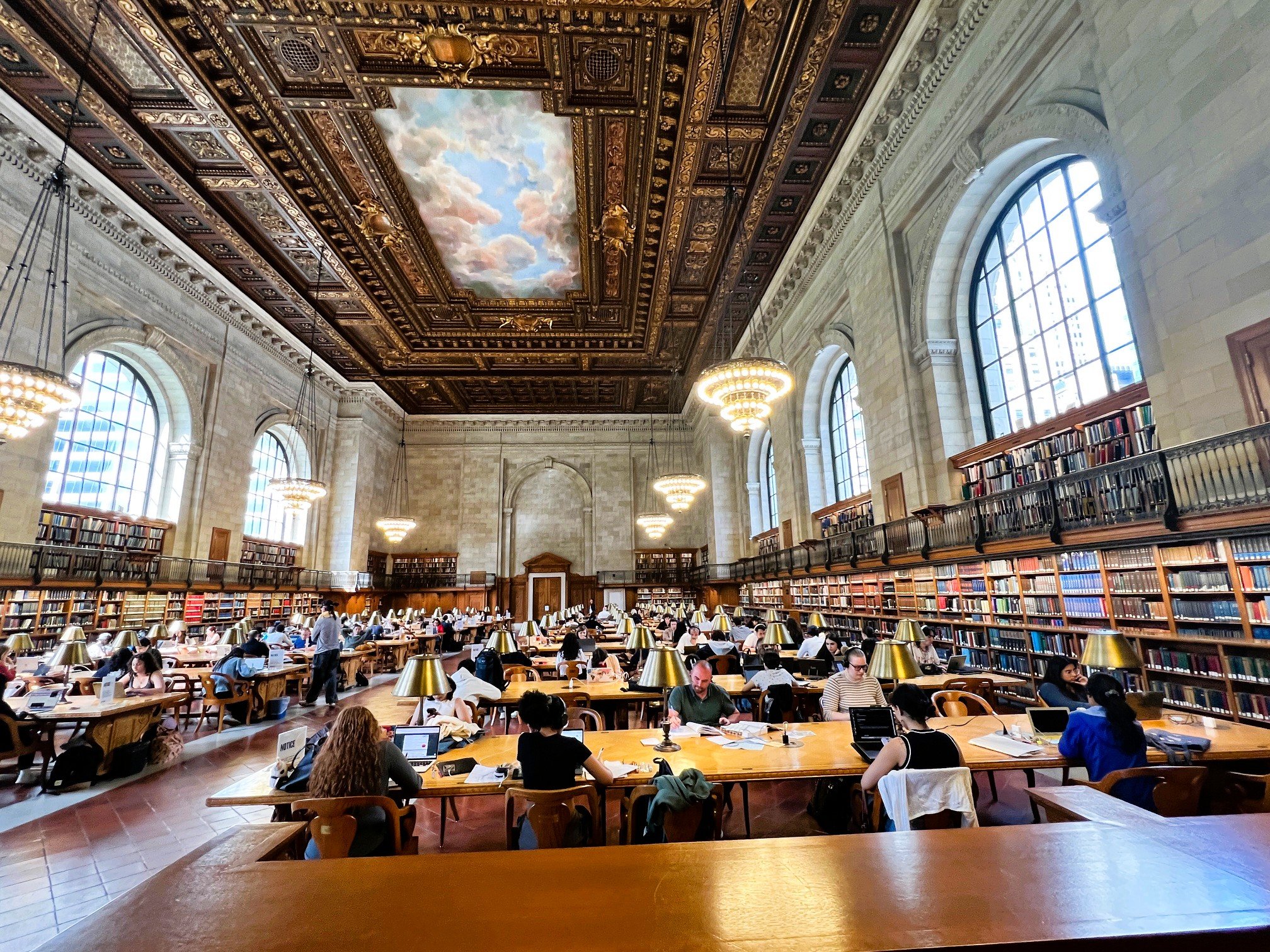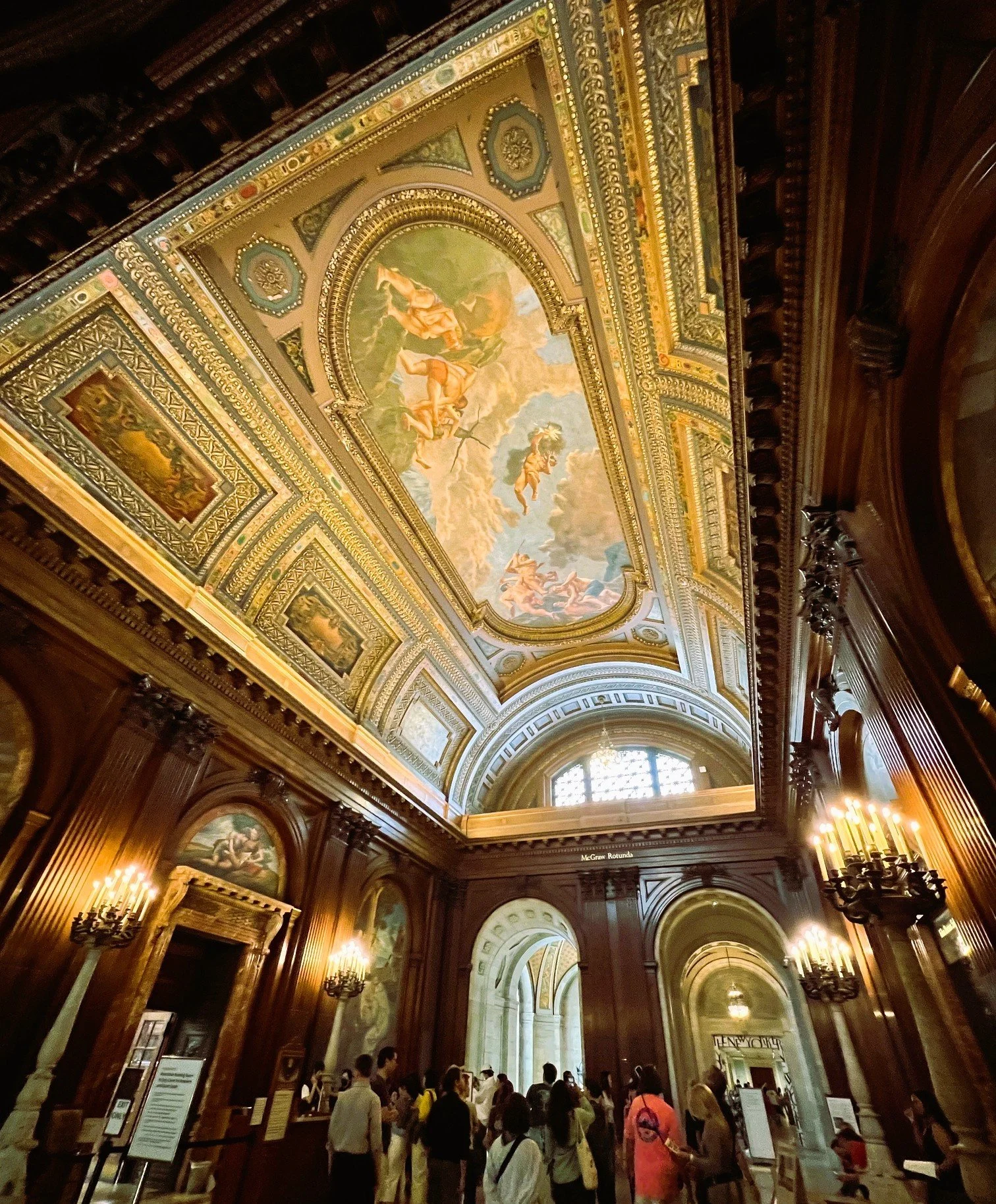The Radical Reader
A fictional travelogue; four minutes to read.
On the third floor of the New York Public Library, in the Rose Reading Room, I’ve become a regular. The stone lions guarding the main entrance recognize me on sight.
The library’s artwork is engraved on my cornea. Fifty feet above me, painted on the ceiling, white cumulus clouds and blue skies prod me to think about climate change. A hallway mural depicting Gutenberg’s printing press reminds me, as if a history teacher needed reminding, that learning is the first principle of good citizenship.
In this Trump Era of Ignorance, a barricade of books is my best protection against misinformation and crackpot conspiracies. Readership is now a radical act of public responsibility.
Daily, the president lies to me. Libraries are my sanctuary, a safe space for reclaiming truth.
At the entryway, I pass through Astor Hall. A marble plaque is dedicated to real estate tycoon John Jacob Astor, a German immigrant, who funded the beginnings of the New York Public Library.
A century later, another real estate developer Fred Trump, also of German descent, fathered a son who defies and defiles science, education, knowledge. He tolerates book purges. His followers are a bookmark away from burning books.
I teach American history which is another way of saying I am a book reader which is another way of saying I am in the Resistance. I’m not alone. In 17,000 public libraries throughout America, readers—a coloring book of human diversity—make 1.3 billion visits every year.
Two seats to my left, a college age woman is studying. On her backpack, a small LBGTQ pin sparkles. She scans the room restlessly as if hiding out.
One table over, a woman in a tailored business suit and dusty pink hijab sorts through a pile of government reports. Her face is slightly frantic as if fearing discovery.
Behind me at a study carrel, an African American gentleman with white hair is engrossed in a book about the Ku Klux Klan. His leg is jumpy as if his personal history is repeating itself.
I am the white, middle-class male in a pullover sweater reading up on Hitler’s rise to power. My hands are sweaty as if hearing my grandparents tell the story.
For much of human history, libraries—even reading lessons—were the private privilege of the rich and powerful. In the Rose Reading Room—two blocks long, seventy-eight feet wide—the newest newcomer to the country’s biggest city is entrusted with borrowing and returning books unharmed. Underneath us in the library’s underground vault, four million manuscripts are ready to educate, empower and inform my resolve to call B.S. on my government.
A young couple, thinking only of their devotion to each other, is ripping a page from the Love Poems of Keats. My neck muscles tighten. I see red. My teeth clench.
It’s as if Trump himself is greedily flouting the laws of the library. If I believe the history I teach, now is not the time for compliant, cowed good Germans looking the other way.
I wait for someone to notice. No one moves.
I stand, hesitate, stare. My mouth is dry.
I need to say something, do something.
I need to start writing the patriotism chapter of my biography.
